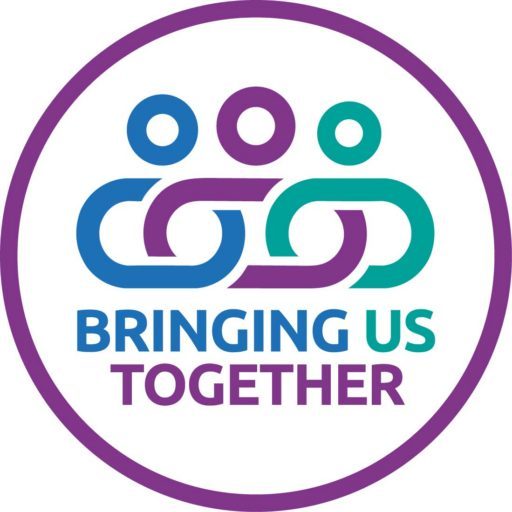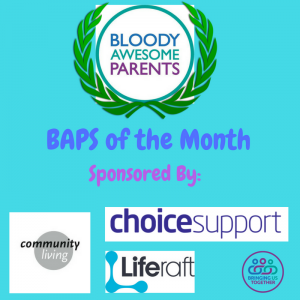Parent Groups – Communication
As we continue our series of tips on running a successful Parent Group, we come to “Communication”. It’s good to talk, as the old BT adverts used to tell us. However, it is also important to know that what you are saying is being received and understood.
One of the biggest issues many groups, and indeed large corporate organisations, face is the consequences of poor communication.
Communication: the imparting or exchanging of information by speaking, writing, or using some other medium.
There is often an expectation that everyone understands what the heck we are on about, we use our own jargon, we forget that some people were not at the table when things were discussed and most importantly, we forget to check.
A more accurate definition of communication is:
“A two-way process of reaching mutual understanding, in which participants not only exchange information, news, ideas and feelings but also create and share meaning.”
 Communication with the other people helping to run the group?
Communication with the other people helping to run the group?
Do you know when is a good time for your team to respond to emails? Do they check their emails? Do you have chats on Facebook messenger? Do you have a Facebook group to chat? Do you have all of the above and use them randomly because you’re not sure which is best? Do you meet regularly? Do you chat face to face or is all your communication via email or messenger?
How’s that working for you?
If it is working for you and for everyone else involved, then stick with it. Don’t fix what isn’t broken. However, poor communication in groups, whether written or oral, can mean you spend more time trying to rectify the chaos it often brings, rather than doing anything productive. It leads to negative feelings, anger, anguish, anxiety and often a breakdown of the group.
So have a coffee and chat about what works for each of you.
Think about how people access information? Is email the best for everyone? If not, what are the other options and what works for everyone? What happens if someone doesn’t understand a comment – who do they speak to? What is a bad time to call someone? When do they like to meet/chat on the phone?
Is it clear if you are just passing on information or if you are asking for a response?
To give you a more practical example, here’s how this works at Bringing Us Together:
Katie lives in Yorkshire and Debs is in Kent – so we can’t grab a coffee together frequently. Believe us, good communication didn’t happen overnight. After messages were missed, misconstrued or overlooked, we sat down (over a few glasses of wine) and talked through what was and wasn’t working with communication. We came up with something that worked for us.
Katie knows that between 3.30-6.30pm is total chaos in Debs’ home. Chances are no emails will be checked, no messages will be looked at or responded to. There is also a strong chance that Debs is convincing herself it isn’t too early to drink wine.
Katie knows that during that time if she needs to speak to Debs urgently, it is best to ring her. Debs knows that if Katie does ring during that time, it really is urgent.
Debs knows that Katie tends to respond to emails after 9pm.
Debs knows that Katie takes the dogs out for a run most mornings after the kids have left for college.
We have a Facebook group where we share information which is just on a “need to know” basis, no immediate action needed (for example, notes after a meeting, or a link to a post we have published).
We have a Facebook messenger chat for anything requiring a more immediate response.
We rarely email each other for a response, we tend to use email to cc each other so we know what the other person is doing.
We also have other people working with us on a variety of different projects. So we set up new Facebook groups for those projects. So the relevant information goes to the right people and is easy to find.
If we ask each other to do something, we also discuss a time line. So, for example, Katie will say to Debs “I really help with “x/y/z” by next Friday, is that possible and if yes, when can you do it?”
We tried Facebook messenger but once you get more than two people involved, it can get confusing. Even three people can cause chaos if two people start chatting and the other is sat trying to convince her son that sleep is not an urban myth and the notifications are going crazy. Or you open the messenger chat and see “56 unread messages” and lose the will to even begin reading them.
Communication with the people who are using your group?
Most of your communication with the people who use your group will come under “marketing”. However, ask the same questions when thinking about what works best for them.
What works best for them? An email, a hard copy of a newsletter, a Facebook group? When is a good time to email or message them?
A few other things to consider:
Is your communication clear? Read it to a neighbour/friend/partner – someone not involved with the group – beforehand. Do they understand what you are saying or are there a few points that need clarification?
Obviously that doesn’t apply to a quick message but for any updates, reports or news, it is important to check, if possible.
Do you appreciate how the written word can be misconstrued? So many arguments and fall outs come about because people misunderstood the tone of an email or thought it said something which was never intended. How often have you heard someone say “what do you think she meant by that”? It’s something we all do from time to time.
A great example, used in many workshops, is the sentence “It wasn’t me who stole that money“. Changing the emphasis on each word gives the sentence a whole new meaning. If you say “it wasn’t ME who stole that money” it implies someone else did. If you say “It wasn’t me who stole THAT money” it implies you perhaps stole some money, just not the money in question. And so on.
So think about what you are writing. Read it out loud, change the emphasis on words, think about the people reading it, think about when they receive it.
Communication – check list
- How do we communicate?
- Do we prefer email?
- Facebook Group?
- Facebook Messenger?
- Other?
- If we have all of the above, what do we use each one for? Do we all know this?
- When is a bad time for us to contact each other?
- How do we all access email/Facebook? Phone/computer?
- When do we all access email/Facebook?
- Have I used jargon?
- Have I presumed people know more than they do?
- Do I want a response? Have I made that clear?
- Have I said when I need something by? Is that clear?
Next week we will be looking at how to measure success and why you should. Success isn’t just measured by the number of members or the number of activities. It can be measured in many way.
Don’t forget to sign up for updates so you don’t miss it.
Mum to three great kids, each with a different SEN.
Transplanted from the NW to the SE.
Co-founder and Director of Bringing Us Together

 Communication with the other people helping to run the group?
Communication with the other people helping to run the group?





